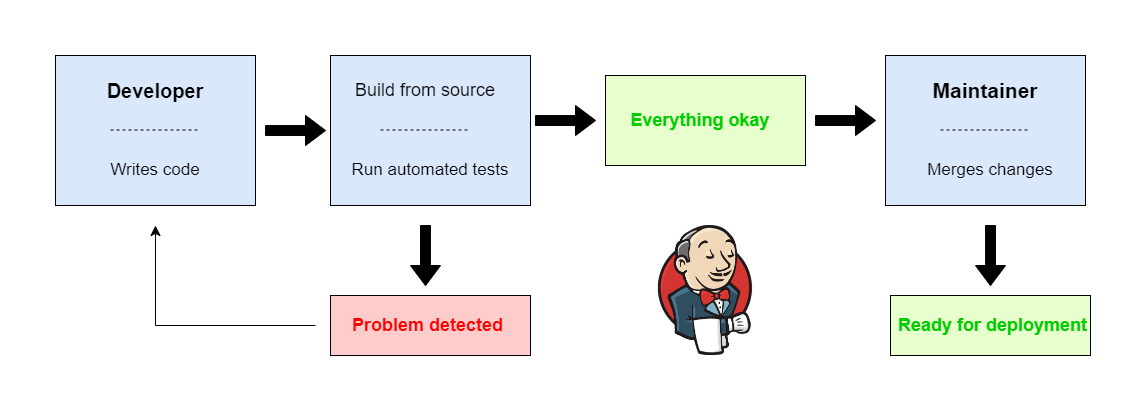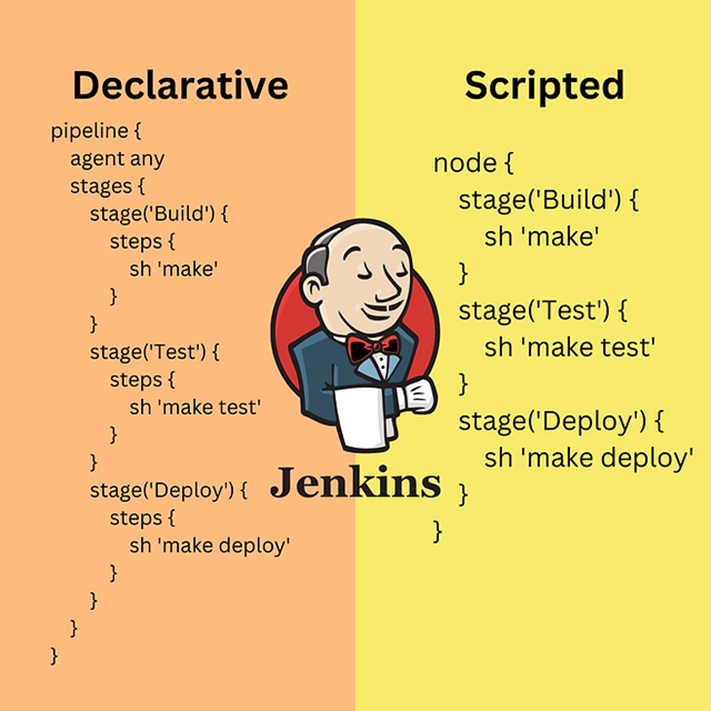Introduction
In today's software development landscape, where speed, reliability, and efficiency are paramount, tools that facilitate Continuous Integration (CI) and Continuous Deployment (CD) are indispensable. Jenkins, an open-source automation server, has become a cornerstone in the world of DevOps, helping teams streamline their development and delivery processes.
Why Jenkins
Continuous integration is possible with Jenkins, a software program DevOps tool.
A server where the central build will occur will have Jenkins installed on it. An extremely basic workflow for Jenkins is shown in the flowchart below.

Significance of Jenkins
1. Automation and Efficiency: Jenkins automates repetitive tasks in the software development lifecycle, such as building, testing, and deployment. This reduces human error, saves time, and increases efficiency.
2. Continuous Integration: Jenkins enables teams to continuously integrate code changes into a shared repository. This practice helps identify and resolve integration issues early, leading to more stable software.
3. Continuous Deployment: With Jenkins, you can set up automated deployment pipelines to deliver code changes to production seamlessly. This accelerates the release process and ensures consistency.
4. Extensive Plugin Ecosystem: Jenkins offers a vast library of plugins to extend its functionality. You can find plugins for various version control systems, build tools, and cloud platforms.
5. Scalability: Jenkins is highly scalable and can accommodate the needs of small teams to large enterprises. It can distribute tasks across multiple machines for parallel execution.
Pipelines
Jenkins Pipeline is a collection of plugins that facilitates the set up and maintenance of such pipelines for continuous delivery. The delivery pipelines, both simple and complicated, may be written in a programming language called pipeline DSL and deployed through an extendable automation server. A series of related activities that occur in a predetermined order is called a pipeline.

JenkinsFile
A Jenkinsfile is a fundamental component in Jenkins that defines pipelines. It allows you to describe your pipeline as code using a domain-specific language (DSL). A Jenkinsfile is a text file format that documents the procedures involved in setting up a Jenkins pipeline.
The benefits of using JenkinsFile are:
• With only one JenkinsFile, you can have pipelines created automatically for all branches and be ready to run pull requests.
• A review of your Jenkins code is available on the production line.
• Your Jenkins workflow may be tested.
• There is just one place where changes to your pipeline may be made, and it’s accessible to everyone.
• Either the Web UI or a Jenkins File may be used to define a JenkinsFile.

What are the Top plugins for Jenkins that programmers use every day?
Dashboard View
This plugin allows you to create a customized dashboard for your Jenkins program. Through this, you can decide the jobs you want to monitor, and track their status and completion.
Monitoring
This plugin allows you to analyze metrics such as CPU Time, memory, security issues, and bugs. It also captures log information, data dumps, and HTTP responses.
Kubernetes
Developers use this plugin for adding Kubernetes cluster features to their Jenkins build. It helps to scale the Jenkins agents through Kubernetes. It also adds an additional layer of automation to Jenkins and makes sure that the infrastructure defined by the developer is managed effectively.
Build Pipeline
This plugin allows you to check the job flow for that particular build. You can check the triggers and successors for a particular job or set up reporting for triggered jobs. It’s important for DevOps applications that require you to check on different elements of the job structure simultaneously.
Conclusion
Jenkins is a powerful and versatile tool for automating and managing the CI/CD process. However, its effectiveness depends on proper configuration, maintenance, and integration into your development environment. As with any technology, it's essential to assess your organization's specific needs and goals to determine if Jenkins is the right choice for your CI/CD needs.
